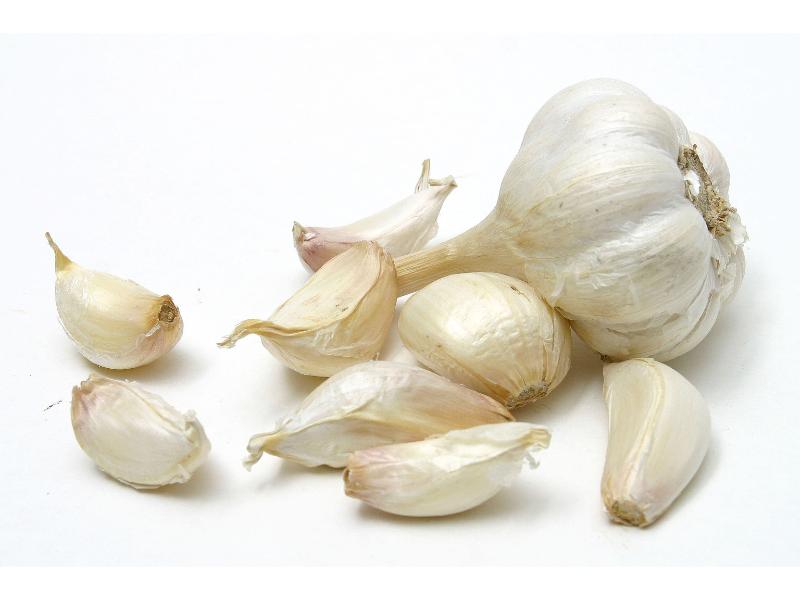Search in medicinals
Allii Sativi Bulbus
Garlic [bulb]
大蒜1 〔大蒜1〕 dà suàn1

Alternate Chinese names: 蒜仔 suàn zǎi
Kingdom: Plant
Origin in PRC Pharmacopoeia: Allium sativum L. (PRC Pharmacopoeia)
Origin in unofficial sources: Allium sativum L.
Use: Medicinal
Category: External-use agents / Toxin-attacking, worm-killing, and itch-relieving agents
Properties: Acrid; warm. (Some sources list sweet and balanced instead.)
Channel entry: Spleen, stomach, and lung channels.
Actions and indications:
- Resolves toxin, kills worms, disperses swelling: Swollen welling-abscesses and clove sores; scab and lichen; hookworm; pinworm.
- Resolves toxin and checks dysentery: diarrhea; dysentery; pulmonary consumption (tuberculosis); whooping cough. It can be used to treat food poisoning from eating crab
- Fortifies the spleen and warms the stomach; increases the appetite. Regular consumption of garlic pickled in vinegar fortifies the spleen and warms the stomach. It can increase the appetite and can treat cold pain in the stomach and stomach duct, and also prevent influenza.
- Use in moxibustion: Garlic may also be used topically in natural moxibustion as an insulating material to prevent excessive blistering of the skin.
Dosage and method: Topical: typically crushed or sliced before applying. Oral: eaten fresh or or decocted (3–5 cloves per single dose).
Warnings: When applied topically, dà suàn easily causes redness, burning, and blistering of the skin, so it should not be applied for too long. It is contraindicated for use in enemas during pregnancy. It is unsuitable for conditions of yīn vacuity and effulgent fire, nor for diseases of the eyes, tongue, throat, mouth, and teeth. Dà suàn is known to lower plasma glucose levels and is associated with lowering of blood pressure and cholesterol levels.
Quality: Plump teeth and absence of mold are signs of good quality.
Production area: Widely cultivated.
Back to search result Previous Next